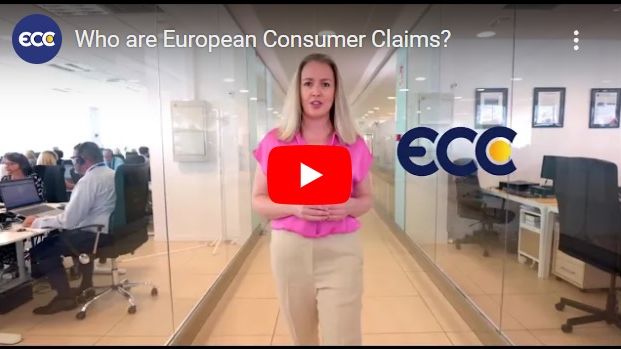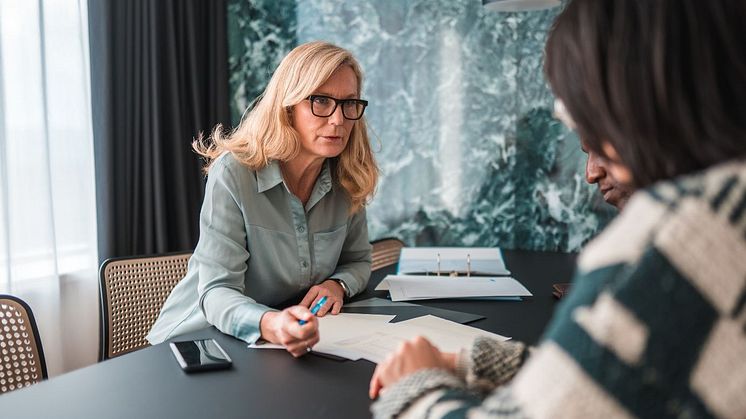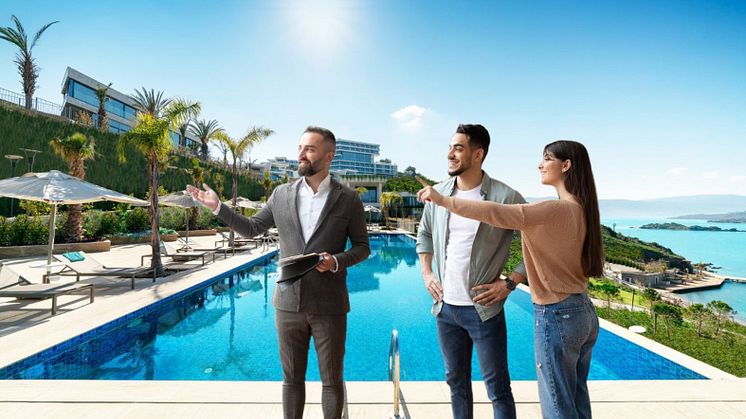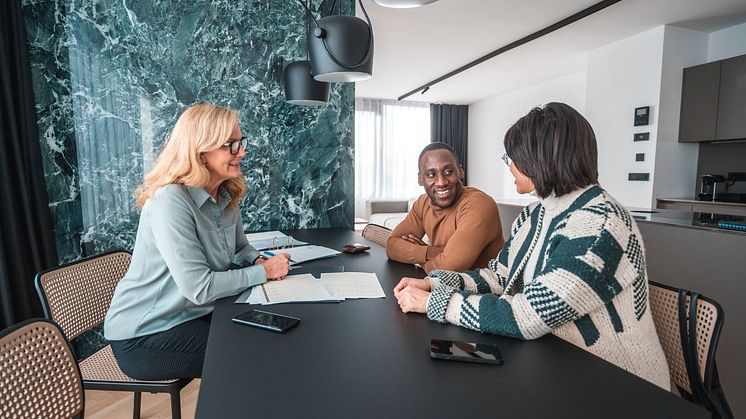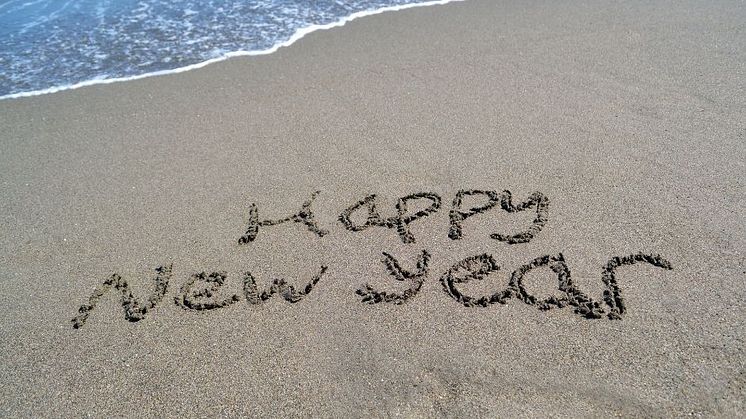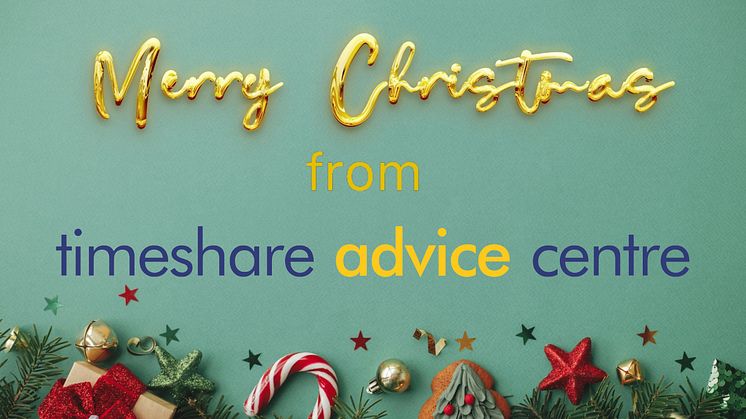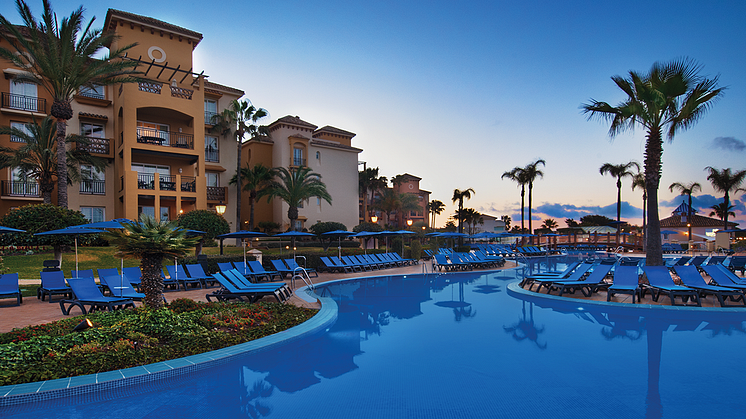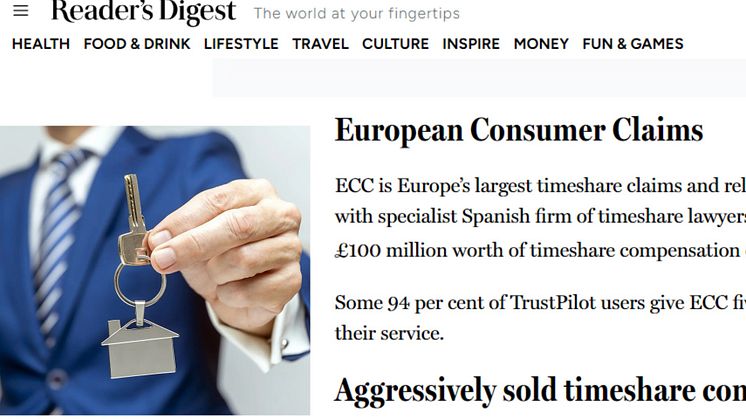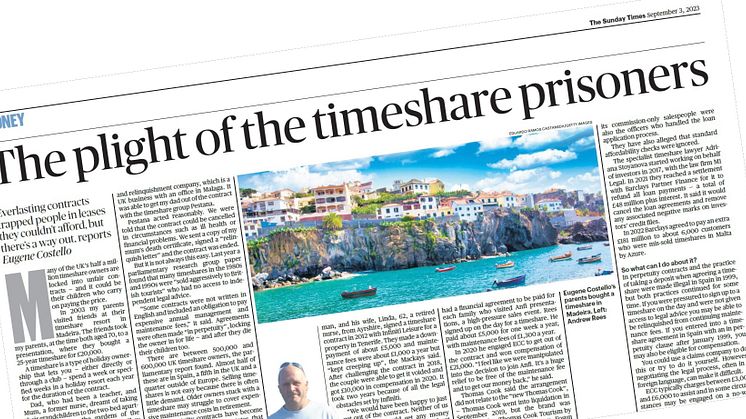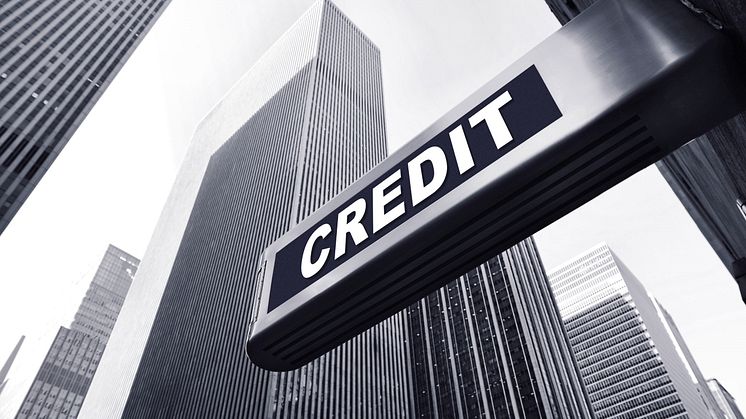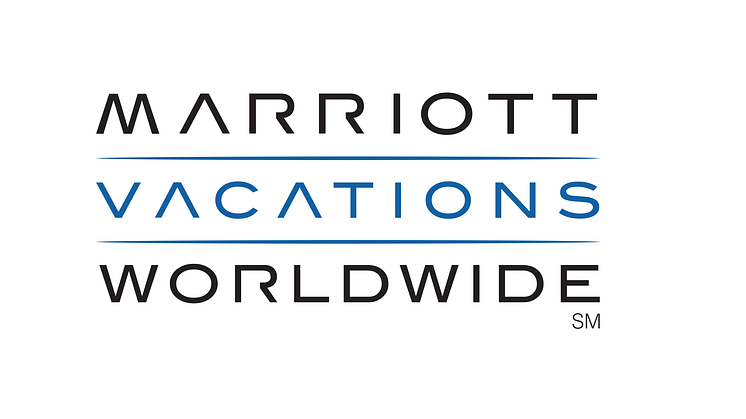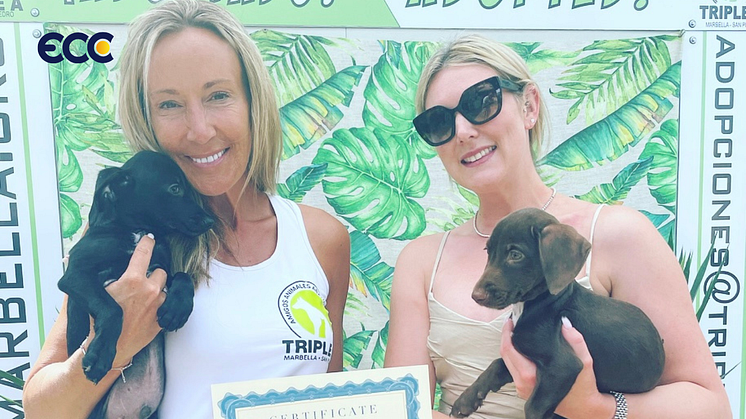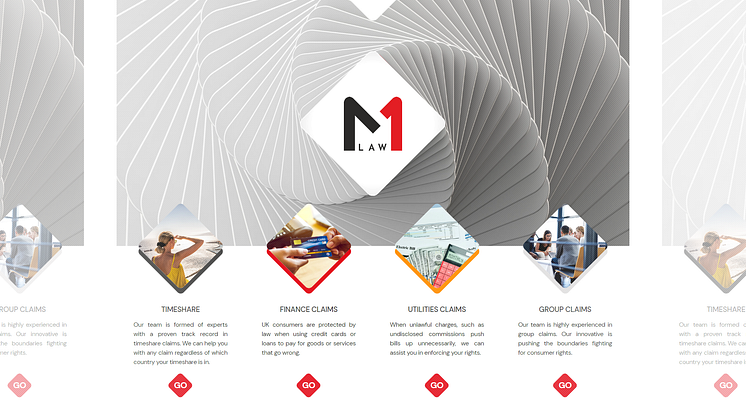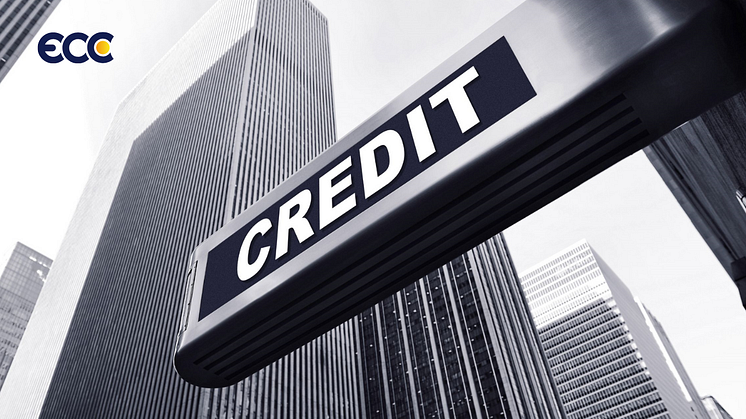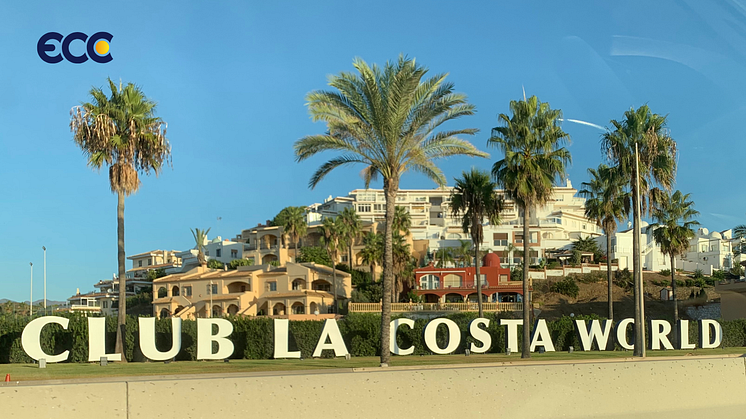
Press release -
How do high pressure timeshare sales actually work?
20 million households worldwide holiday through timeshare memberships. Around 600,000 of those are from the UK
We all know to expect the hard sell when agreeing to a timeshare presentation whether it’s for a free holiday or (back in the day) waterpark tickets, duty free cigs/booze or car hire.
Common sense tells us to stay the 90 minutes, grab the gifts and run without buying.
So why don't we do that? Why instead do we keep signing up on the day?
The answer may lie in an exceptionally well honed sales process, designed to emotionally manipulate prospects into spending tens of thousands of pounds in a few short hours.
High pressure sales does not feel like high pressure if it is done skilfully, yet here you are half a day later, the proud new owner of a timeshare.
Read on if you do own a timeshare, and see if you recognise elements of your own buying experience...
Process
The location helps. It is usually in a luxury complex or resort. But people don’t spend huge sums of money this quickly just because a resort looks pretty, or the deal seems like a good one.
In fact people attending a timeshare sales presentation usually have their guard firmly up. Couples make an agreement beforehand (referred to by salespeople as ‘The Pact’) to definitely not buy anything, regardless of what happens.
The timeshare rep is well aware of The Pact, and knows just how to break it.
The sale is built like a house: From the ground up.
1. Meet and Greet:

When UPs (Unsold Prospects – the name given to people attending sales presentations) arrive, the sales rep knows she has to create a great first impression. She will be conservatively dressed, friendly and open. Her hygiene will be immaculate as will her grooming
She knows that in the first few seconds, the UPs will form a large part of their judgement about her. This judgement is unconscious and very difficult to change. It can only really be added to.
The rep avoids any discussion of sales. Her behaviour will be non threatening and she will pay attention to every member of the group. Not just the people who appear to be the decision makers.
She will take control by leading the UPs away from the reception area to begin the process.
A well executed Meet and Greet will lay the foundation for step 2: The Warm Up.
2. Warm Up:
The Warm Up is a ‘conscious’ continuation of the ‘unconscious’ first impression/Meet and Greet. It is designed to affirm and build on the positive first impression.
The rep will continue to avoid any talk of business and will deflect questions on the subject so that she seems more interested in the UPs as human beings than about notching up another sale.
The rep will take the UPs for a drink or some food. She will encourage conversation through open-ended questions about anything but sales or her product. The rep’s Warm Up goal is to form bonds with the UPs and show that they have a lot in common. The connections could be anything, including but not limited to: being parents, being from the same town, having interests in common, liking the same movies/music, or following the same sports teams. The more that the UPs see they have in common with the rep, the more their guard will come down.
The rep will also be subtly trying to ‘mirror and match’. This means adopting similar body positions and speech patterns to her UPs.
The rep knows that: 'People like people like them.'
After a strong warm up the UPs will see the rep as likeable and trustworthy. They are nowhere near ready to buy, but the goal at this point is that they should be ready to be honest.

Now the rep can pivot the focus of the presentation gently towards business, with the EASTER statement.
3. Intent (EASTER) Statement:
The rep has to judge when the UPs are warmed up enough to make the all important Intent/EASTER statement. Do this too soon and the UPs do not trust the rep enough to let her take control and turn to business. Leave it too long and the UPs are bored and want to leave. They are usually on holiday and don’t have time to waste.
The Intent Statement will non-confrontationally break the pact and allow the rep to direct the tour towards business.
At this point, the UPs should be happy for the likeable, confidence inspiring rep to take charge.
The Intent Statement usually takes the form of a 1 to 2 minute monologue and covers the following points
- Empathy: "I imagine like most of our guests, you are probably wondering what is going to happen on this presentation. Is it going to be high pressure? Will it last long? You may even have made an agreement with each other not to buy today. If so that is absolutely ok."
- Agenda: "All we're going to do together is have a look at the amazing facilities we have here, and I’ll show you how our membership works. If you do end up loving what you see what you see, I’ll show you different ways to join."
- Set up DISCOVERY: "Your time is precious, as is mine. So before showing you around I´d like to sit and ask a few questions about your specific holiday requirements. I only want to show you aspects of our membership that might interest or benefit you. These questions will help me to do that."
- Take away: "We know that what we have here isn't for everyone. If we figure out between us that it isn’t for you, then I won´t try to convince you otherwise. All you will be offered today is a choice. You can carry on holidaying as you currently are, or you can choose to move forward holidaying with us. Either way you and I will shake hands and part as friends."
- Expectation: "Most people I show around do love what they see and I am sure you will too. It is pretty special. And I’ll make sure we have fun this morning no matter what."
- Request to begin: "Does that sound good to you? Yes? Brilliant, let’s get started."
With the UP's permission, the rep can begin the questions that will shape the sales presentation .
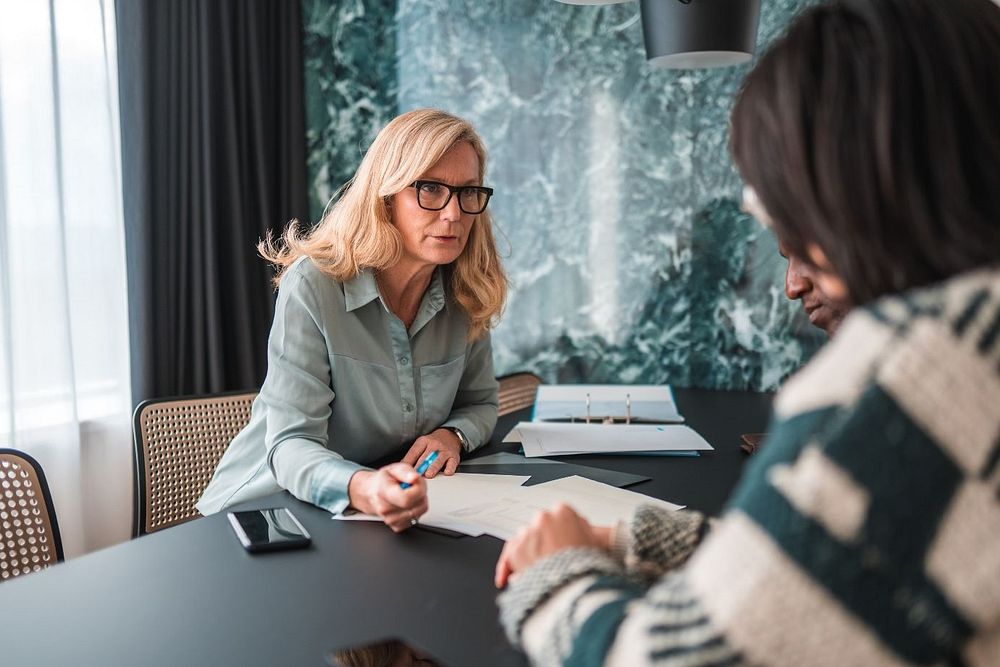
4. Discovery:
The first 3 steps mean that the UPs are ok with the questions about to manifest in the Discovery, and crucially (because of the relationship they now have with the rep) that they will give honest answers.
The Discovery involves the rep using what are known as first, second and third level questions based on 'The Rule of Three'.
- The rep will establish what the UP´s Dominant Buying Motives, or DBMs, (sometimes called True Emotional Motivators -TEMs) are. What motivates them most? Is it: health, luxury, status, family, adventure? By identifying the UP’s DBMs/TEMs the rep will know which aspects of the product to focus on in order to make it appeal to the UPs
- The rep has to identify Holiday Challenges. Aspects that the UPs find difficult about the way they currently holiday, and which would be addressed by buying a membership.
- The rep needs to know what the UPs honestly currently feel (if anything) about the idea of timeshare, and even about the specific company the rep is working for. If feelings are negative, the rep can address them later on. If they are positive the rep can build on them.
During the Discovery itself, the rep knows not to react to anything the UPs tell her. She will store the information up to address later in the presentation itself.
The rep understands that if she reacts to any information instantly, she will train the UPs not to volunteer their real feelings for the next question.
A skilfully done Discovery leads to the UPs literally giving the rep a roadmap of how to sell them a membership.

5. Information Confirmation:
After the Discovery comes the Information Confirmation.
The rep has been noting (either mentally, or with physical notes) the UPs' responses to Discovery questions.
Now comes the chance for the rep to impress the UPs by summarising the information that they gave her in the Discovery.
By accurately confirming the UP’s information back to them, using their own words when possible, the rep demonstrates that she was paying attention and understands the UP’s unique situation, and thereby gains permission to present a membership solution that is highly personalised to the UPs
An example of an Information Confirmation could be: 'Ok Hank and Julie, from what we have discussed together (and correct me if I'm wrong) it's pretty clear that the most important thing in life for you guys is adventure.
"If I’m hearing you right, new experiences are what you live for. To use your own words: you work hard managing your auto sales business and can only really get away for a couple of weeks a year. You want to make the absolute most of that time in terms of excitement and gaining new perspectives.
"You guys also mentioned that in the past you have had trouble getting the right quality, in the right location and at the right price. I think what you said was that you are fed up with compromising.
"Finally you were clear that you have only read or heard negative reviews about timeshare but are prepared to make your own mind up about what you see today, although you also want to be clear that actually joining the club today is not really something you are considering.
"Is that a fair summary of your position?”
Following a well delivered Information Confirmation the UPs should be in agreement and impressed that the rep has paid attention enough to have such a good grasp of their situation.
The rep can now gain permission to begin the presentation itself. The Product Explanation and Physical Tour. “Hank and Julie, whether you join us or not is naturally up to you, but from what you have told me, my feeling is that you will love what we have here. Shall we go and see if I’m right?”

6. Product Explanation and Physical Tour:
Next comes a brief explanation of how membership works. It is done on the 'sales deck' by computer presentation, or sometimes with a notepad and pen.
The UPs have to be brought to the point where they agree that membership is at least as easy to use as how they are booking holidays at the moment.
Company credibility also has to be established, to the degree that the UPs agree the club is trustworthy enough to do business with, IF they wanted to do so.
This section of the presentation has to be brief. It is the first time the UPs are exposed to the ‘logical’ business area of the sales deck. The rep knows that she has to quickly get the UPs back out into the ‘emotional,’ fun environment of the resort itself.
The UPs have bought into the logic, but emotion is what makes the sale. The rep has to show the resort and its facilities in a way that appeals to the UPs' needs and motivations. She has to make sure that the UPs truly picture themselves holidaying like this.
The rep uses 3rd party stories to address concerns, overcome objections, and demonstrate how similar people to the UPs got what they wanted by joining the club. She will be using closing questions and trial closes to cement in the UPs' minds their positive feelings about the resort and membership.
The rep works to gain as much agreement as possible that yes, this is what the UPs want and deserve.

After this immersive demonstration, the UP should be in love with the resort and accompanying holiday system.
It’s time for the rep to lead the UPs to a stunning location like the show apartment, and deliver the Final Close.
7. Final Close:
In most timeshare operations, the Final Close is the last presentation task for the rep.
Before taking the UPs back to the sales deck to be (hopefully) signed up for a membership, the rep has to get agreements from them that they love what they have seen, and if it was affordable: yes they would love to join up, today.
A final close might involve the rep seating the UPs on the balcony of a stunning show apartment and telling them: “Hank, Julie I’ve enjoyed my time with you today. What about you, have you liked what you have seen?”
The rep needs agreement and confirmation that they love the resort and holiday system. This should be straightforward. It is far from a commitment to joining today.
Next come follow up questions: “Do you have any questions about the resort and how membership works?”
In a perfect world the UPs would ask: “Only how much it costs to join?”
However in most cases the UPs will have more realistic questions about functionality, which the rep will clarify.
Then comes the big question: “Great, so you love what you have seen and you could see yourselves using it. Tell me, is there anything besides the actual price that would stop you guys from becoming members today?”
The rep has to get commitment on this point: Yes, they would love to join if it was affordable.
Every UP should, at this stage agree that they would love to be members if it is affordable. If not then the rep has failed on one of the previous steps and must revisit them to overcome any objections.
All being well, it’s off back to the sales deck for pricing.
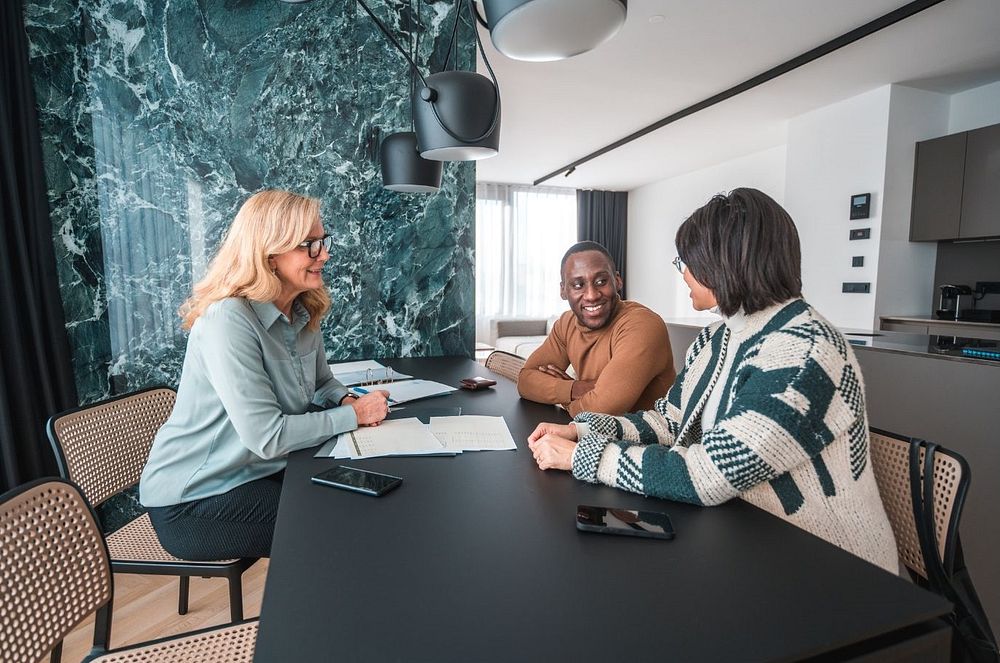
8. Pricing:
This is what the previous several hours has been leading up to. The couple are going to be shown joining costs by a Pricing Manager (also known as a TO or Takeover).

There is usually a strict protocol. The rep will bring the UPs to a table and sit next to them by the side of the person of the same gender. A TO will come over and sit opposite, looking to the rep for a strong handover, along the lines of: “This is Hank and Julie from Wisconsin. We’ve had a brilliant time today, and these guys love what they have seen. They’d love to become my latest members if it is within their price range. Isn’t that right Hank and Julie?”
After gaining agreement from the UPs, this is the last time the rep is allowed to speak until after the UPs have made their choice.
The TO is an experienced closer and now is in control. His job is to close the deal He will show prices, offer discounts and drop products. He will keep trying to find a suitable way for the UPs to join until they either sign up, or run out of patience and demand to leave.
A rep who interrupts in any way at this point is at risk of getting a swift boot in the shin from the TO who needs complete control of the table in order to maximise the chances of a sale.
Sales every year
Around one in five couples who attend timeshare presentations that are similar to the above do buy on the day.
The sales don’t end there.
Every time the UPs holiday through their membership in the future, they will be targeted by an ‘In House’ sales team whose mandate is to find ways to sell them upgrades.
On average, over the course of their timeshare ‘career,’ UPs will spend around a further 5 times the amount they paid to join on their initial presentation.
Recognise your own experience?
If the above breakdown of the timeshare sales process sounds like how you were signed up, you are by no means alone. £32 billion is the projected worldwide revenue for the timeshare industry in 2023.
"Unlike buying a car or a home," says Andrew Cooper, CEO of European Consumer Claims, "the majority of timeshare purchases are made at the end of one, several hour presentation, rather than after people researching and taking time to make a decision."
Are these on-the-day purchases all made because the product is totally irresistible? Or are they the result of a manipulative sales process?
You decide...
Want out?
If you believe you were mis-sold a timeshare and want to know your options, get in touch with our team, at ECC.
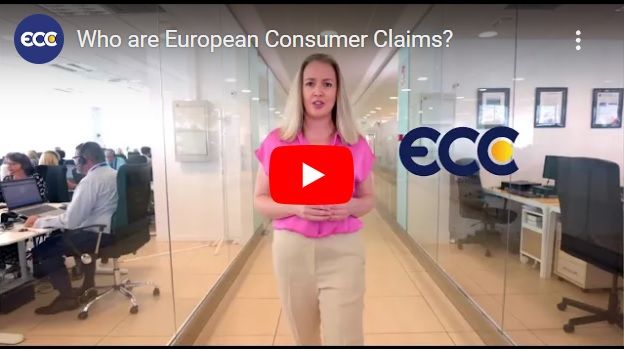
Related links
- European Consumer Claims
- ECC contact page
- How to survive and profit from the dreaded timeshare presentation
- How To Survive A Timeshare Presentation: Tips You Need To Know
- MEETING AND GREETING IN TIMESHARE | TIMESHARE SALES TRAINING
- How do you use mirroring and matching to build trust and credibility with your prospect?
- Sales intent statement
- Sales Term of the Day - Dominant Buying Motive
- The Art of the Information Confirmation
- Selling with Stories A Powerful Sales Tool Revealed
- Trial and final closes
- £120k timeshare nightmare leaves Bristol couple facing debt ridden retirement
Topics
Categories
Regions
TAC provides timeshare claims services, relinquishments expert advice and help
E: (for media enquiries): mark.jobling@ecc-eu.com
E: (for client enquiries) EUROPE: info@timeshareadvicecentre.co.uk USA: info@timeshareadvicecentre.us
T: EUROPE: +44 800 102 6070/+44 203 807 3388. USA: 1-888 203 5448/ 1-332 867 1213
Monday to Friday: UK timings: 9am-8pm. Saturday/Sunday closed. USA 9am -8pm EST. Sunday closed
Follow Timeshare Advice Centre UK on Facebook here. Timeshare Advice Centre US here
Follow Timeshare Advice Centre UK on Twitter here. Timeshare Advice Centre US here
Relevant websites for this article
www.timeshareadvicecentre.co.uk


